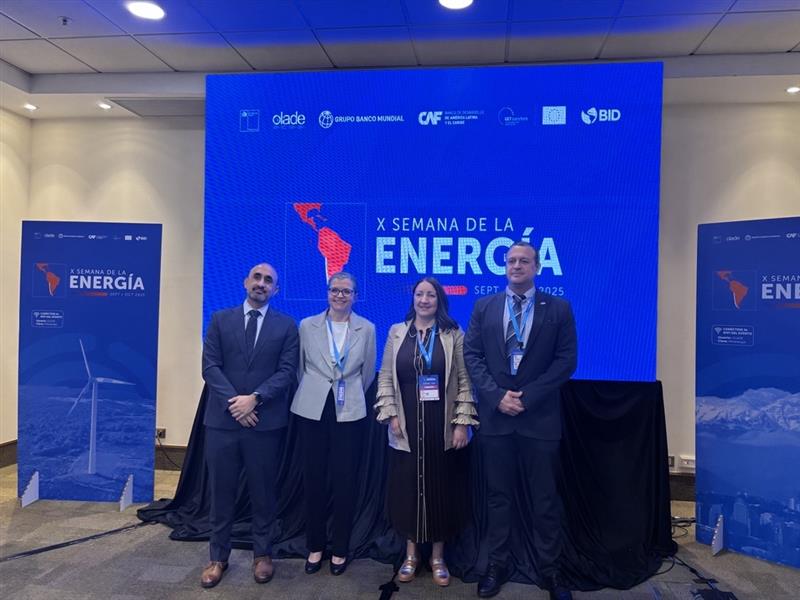Granholm: Hydropower essential to U.S. energy and climate change plans
U.S. Energy Secretary Jennifer Granholm said investing in hydropower especially pumped storage is a central part of President Biden’s energy jobs plan, as she opened the second meeting of the International Forum on Pumped Storage Hydropower.
“We have a lot of work to do to reach President Biden’s goals to get the U.S. on an irreversible path to 100 per cent clean electricity by 2035 and to net-zero emissions by 2050, and we need to deploy a full suite of clean energy and storage solutions as fast as possible,” she said.
“Hydropower, specifically pumped storage hydropower, can help us take major steps forward while creating millions of new, good paying jobs and improving the quality of life for Americans everywhere.

A resurgence of interest
“In addition to being a plentiful clean energy source in its own right, hydropower and pumped storage hydropower also make it easier for us to bring other renewables online, like wind and solar.
“There is a resurgence of interest in starting projects to add more pumped storage hydropower capacity in the energy system, and of course that means three things: jobs, jobs and jobs,” said Secretary Granholm.
“While we’re investing in these projects now, we would like to be able to do orders of magnitude more, as part of President Biden’s energy jobs plan.”
Secretary Granholm also emphasised that new pumped storage hydropower and other hydropower will be built in an environmentally responsible way.
Pumped storage hydropower accounts for over 94 per cent of installed energy storage capacity on electricity grids today. The flexibility pumped storage hydropower provides through its storage and ancillary grid services is increasingly important in securing stable power supplies as the world transitions to a low carbon electricity system.
In a keynote speech, Co-Chair of the Forum Kelly Speakes-Backman, who is Principal Deputy Assistant Secretary for the U.S. Office of Energy Efficiency and Renewable Energy (EERE), and Acting Assistant Secretary at the U.S. Department of Energy, reinforced the U.S. Government’s focus on pumped storage hydropower.
“Pumped storage hydropower can and will continue to play a crucial role in our fight against climate change,” she said.
“As we shift how we power our countries and economies, the need to scale up and realise the power of hydropower has never been greater. As variable renewables development is increased, electric grids around the world need to adapt to incorporate these resources and this creates a clear need for greater flexibility and large amounts of long duration storage in the power system.
Pumped storage hydropower is the “least cost option for almost all large applications”, she added.
“Investment is hindered by uncertain revenue streams, combined with high capital cost and long permitting times, and that’s why we see such a value in efforts like this particular Forum that let us work together with other countries on a path to a clean energy future,” she commented.
“Investment and innovation in pumped storage hydropower could prove to be one of the most important actions that we take to combat climate change and decarbonise our economy. We believe in making our fight against climate change a global effort,” she added.
Single most important issue
Malcolm Turnbull, Former Prime Minister of Australia and Co-Chair of the Forum, said more pumped storage hydropower capacity is the “single most important issue in the clean energy transition”.
“There is not nearly enough long duration energy storage being built. Governments can do a lot but they can’t do all of it and this is one of the reasons this Forum has been set up, which is to look at what we need to do in terms of market design, in terms of incentives, capacity payments, to create the incentives to build the long duration storage we need. That is the big challenge - if we are not able to do this, the energy transition will stall.”
Mr Turnbull pointed out that the long lead time for pumped storage hydropower means governments and industry need to work together to put more capacity in place. “What we need to be doing is planning the energy and storage needs we have in the years ahead and building it ahead of the market.”
The meeting also featured a roundtable discussion with Mr Turnbull and Kostar Skrekas, Minister for Energy and Environment of Greece; K. V. S. Baba, Chairman and Managing Director, Power System Operation Corporation Limited (POSOCO); Ariel Yepez, Energy Division Chief, Inter-American Development Bank; Mike Seaton, Director of Development, SSE Renewables; and Raphaël Lance, Head of Energy Transition Funds, Mirova.
Co-chaired by U.S. Department of Energy and Mr Turnbull, the Forum is a government-led multi-stakeholder initiative that brings together 13 governments, international financial institutions, the International Renewable Energy Agency (IRENA), and over 70 organisations to promote and enhance the role of pumped storage hydropower in future power systems.
The Forum has three Working Groups: ‘Policy and Market Frameworks’, ‘Sustainability’, and ‘Capabilities, Costs and Innovation’, led by GE Renewable Energy, Voith Hydro and EDF respectively. These groups are working on policy and market recommendations that will be presented at the World Hydropower Congress in September 2021.
Emerging findings from the Working Groups were discussed at the Forum meeting, which was attended by over 450 participants from 40 countries.
The International Hydropower Association acts as the secretariat to the Forum.
View the videos from the webinar.
Learn more about the Forum and pumped storage hydropower.








.jpg)

